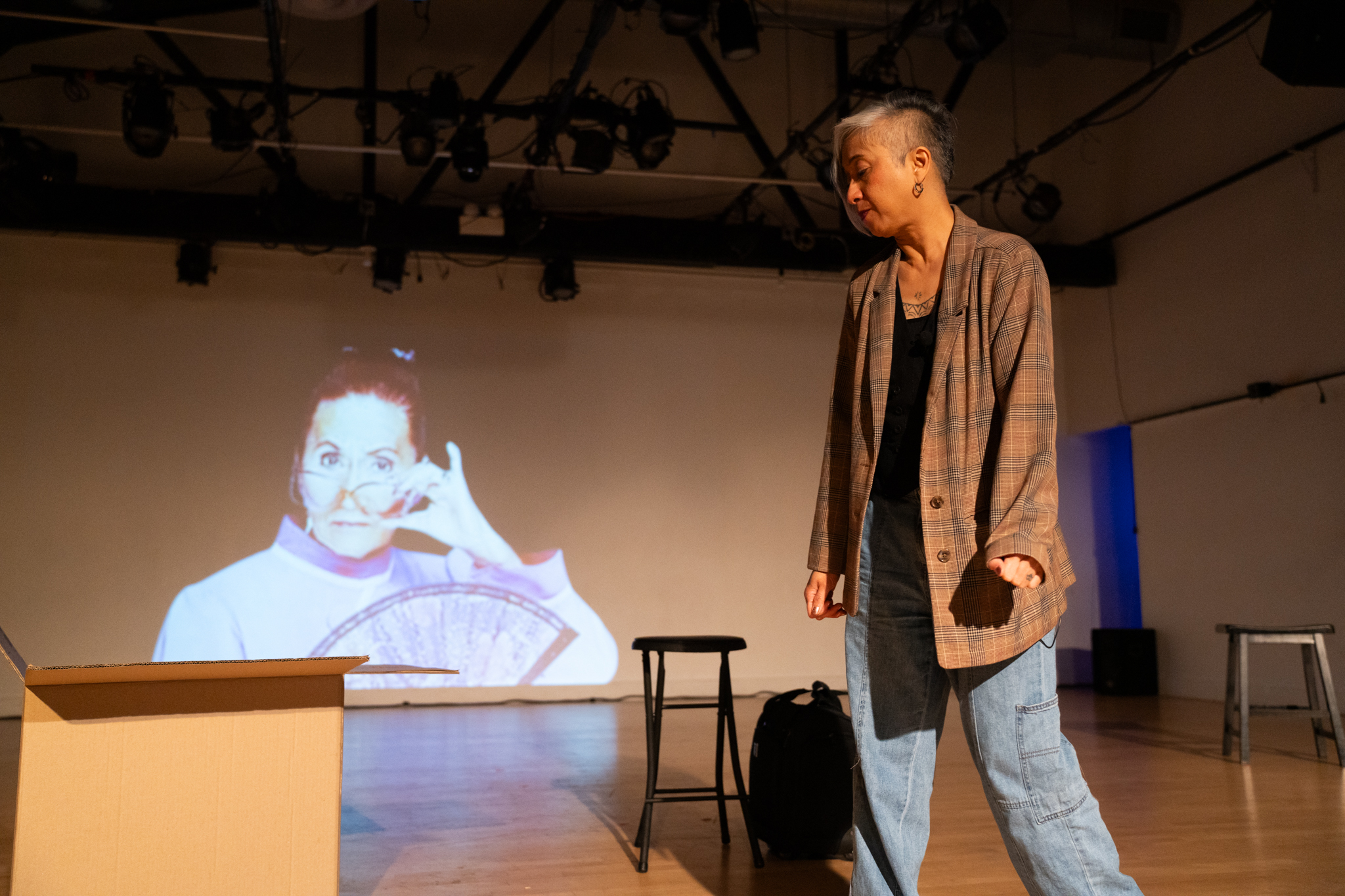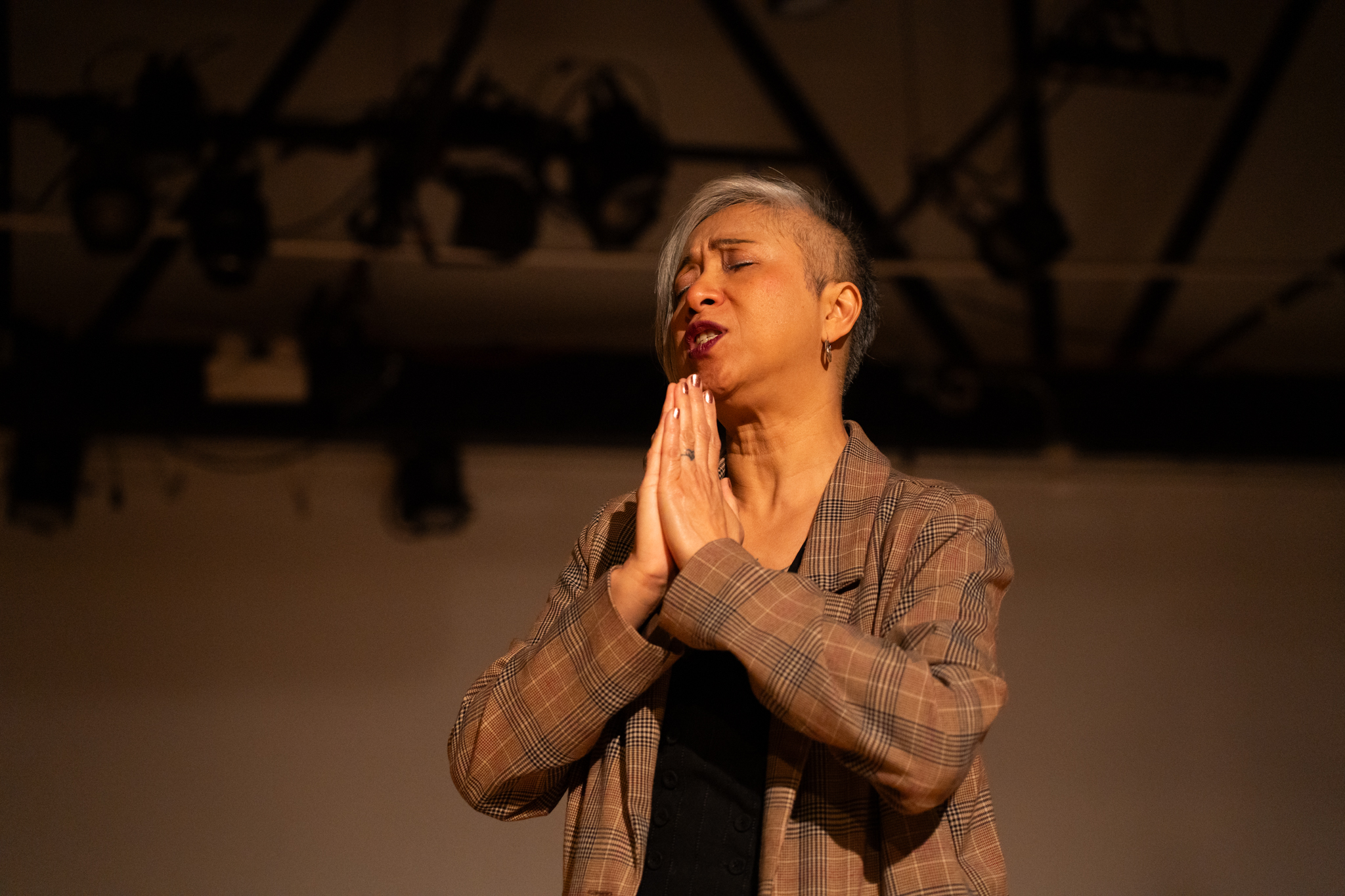




-
Or at least Anak ni Tapia is! If you live there or close by, please come and support. We are doing the show to raise funds for ADHIKA, a Filipino-Canadian community center celebrating their 40th year anniversary this year! https://www.adhika.org/ In fact, a pivotal part of the play happens in Toronto, where I lived and… Read more
Please come back for Ticket links and information!!
-
After celebrated performances in Chicago, (March 27 & 29) and in Milan, Italy (June 1), Anak ni Tapia: Leaving Mother will be at the Hollywood Fringe Festival on June 13, 7 pm, June 14, 12 nn, and June 16, 5 pm at The Actors Company Studio at 916 N. Formosa, Los Angeles, California. For tickets… Read more
Please come back for Ticket links and information!!
-
Anak ni Tapia: Leaving Mother takes audiences on a personal and poignant journey through memory, identity, and reconciliation. The 80-minute performance unpacks the complexities of living life as a queer Filipina immigrant, a daughter living in the shadow of a larger-than-life celebrity mother, and a woman discovering her own voice. The play debuted at Links… Read more
Please come back for Ticket links and information!!
-
I was a sickly child. Juvenile arthritis. Rheumatic fever. Tonsillitis. Hepatitis. Tuberculosis. Meningitis. Not to mention the milestone diseases. Chicken pox. Measles. Mumps. Mumps. Mumps. I got it more than once. My mom must have thought me a broken child, always in need of fixing. I remember seeing all kinds of doctors and being in… Read more
Please come back for Ticket links and information!!
-
After I missed my mother’s 65th birthday and she had a mild stroke after, I made a resolve to visit her every year, even if I went broke. In April, 1999, I was coming back to Chicago from a surprise birthday visit . Entry point: Wisconsin. Between the pages of my Philippine passport were inserted,… Read more
Please come back for Ticket links and information!!
-
Martial law baby. This is the monicker given to those who grew up under the Marcos Regime. I was 9 when martial law was declared on September 23, 1972. I remember waking up the next day, Sunday, and looking for the newspaper so I could get the comic section. It didn’t come that day. My… Read more
Please come back for Ticket links and information!!
-
I encountered this word for the first time after reading the book Little Prince. It was the fox who said “It is only with the heart that one can see rightly; what is essential is invisible to the eye.” I looked it up in my hardy Merriam-Webster dictionary “es·sen·tial i-ˈsen(t)-shəl: of, relating to, or constituting essence : INHERENT: of the utmost… Read more
Please come back for Ticket links and information!!
-
I’ve been writing everyday since May 1 to take the 30-day, 30-minute writing challenge I signed up to raise money for American Cancer Society. However, I said I’ll only publicly share writing that I think may be worth sharing. And this week I caught some students, including one of my favorites, using AI- generated text,… Read more
Please come back for Ticket links and information!!
